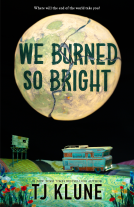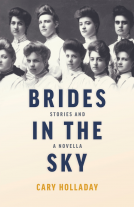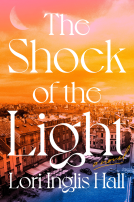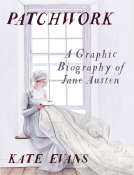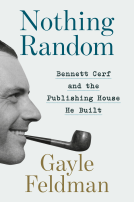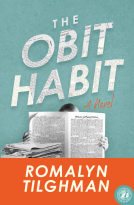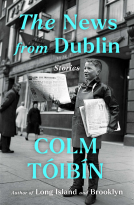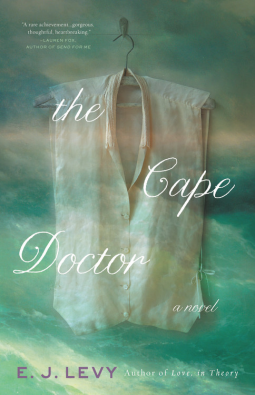
The Cape Doctor
by E. J. Levy
This title was previously available on NetGalley and is now archived.
Send NetGalley books directly to your Kindle or Kindle app
1
To read on a Kindle or Kindle app, please add kindle@netgalley.com as an approved email address to receive files in your Amazon account. Click here for step-by-step instructions.
2
Also find your Kindle email address within your Amazon account, and enter it here.
Pub Date Jun 15 2021 | Archive Date Jan 10 2024
Talking about this book? Use #TheCapeDoctor #NetGalley. More hashtag tips!
Description
Beginning in Cork, Ireland, the novel recounts Jonathan Mirandus Perry’s journey from daughter to son in order to enter medical school and provide for family, but Perry soon embraced the new-found freedom of living life as a man. From brilliant medical student in Edinburgh and London to eligible bachelor and quick-tempered physician in Cape Town, Dr. Perry thrived. When he befriended the aristocratic Cape Governor, the doctor rose to the pinnacle of society, before the two were publicly accused of a homosexual affair that scandalized the colonies and nearly cost them their lives.
E. J. Levy’s enthralling novel, inspired by the life of Dr. James Miranda Barry, brings this captivating character vividly alive.
Available Editions
| EDITION | Other Format |
| ISBN | 9780316536585 |
| PRICE | $28.00 (USD) |
| PAGES | 352 |
Available on NetGalley
Average rating from 27 members
Featured Reviews
 judy h, Librarian
judy h, Librarian
A well written piece of historical fiction. Ms. Levy tells a realistic tale of a woman passing as a man to make her life better and to use her intellect to help the field of medicine and to help her patients.
Well told and easy to get lost in the world where a woman is able to be what she wants, but costs her much.
 Laura M, Educator
Laura M, Educator
Historical fiction at it's best! E.J. Levy's, The Cape Doctor, is a beautifully written book about a woman posing as a man to become a doctor, in a time when neither was legal. Posing to become and continue to be the best could cost her everything. All she has to do is reveal her secret in order to have love, family, etc., but it could cost her life. A book of choices and consequences. A book you should read. Thank you, NetGalley, for the ARC ebook version of The Cape Doctor in exchange for an honest review.
I read this novel in one day.
It was a windy, gloomy day. But that is not why I read it in one day. I read it in one day because I did not want to stop reading.
I loved the narrative voice, the feeling of being transported back several centuries, the knowing wink to the style of the early 19th c in lines like "No one who had ever seen Margaret Brackley in her infancy would have supposed her born to be a heroine (or so Jane Austen might have written of her..."
I was interested in the questions the narrator struggled with, about choice and chance, gender identity, the gap between male and female autonomy and self-determination.
Which of us is undisguised, after all? Which of us reveals himself truly to the world. ~from The Cape Doctor by E. J. Levy
The Cape Doctor is based on the true story of a woman who posed as a man to gain an education and become the first female doctor. She performed the first recorded, successful Cesarean operation.
Levy's character is inspired by the historical Barry, but Levy gives her own spin to the story, concentrating on the feminist issues. Her Dr. Perry lives as a man, but identifies as female. (Another character is hermaphrodite, which some believe Barry was, while others believe Barry was transsexual. Those controversies do not affect my reading of this novel, as this is historical fiction inspired by true events, and not a biography.)
Under Levy's hands, the imagined character Margaret Brackley becomes Dr. Jonathan Mirandus Perry. She tells her story of transformation from a subservient and invisible female to an authoritative and competent professional man of society.
In dire poverty, Margaret's mother sends her to beg aid from her uncle. There, she meets General Mirandus, who takes an interest in her brilliant mind. After her uncle's death, the general sends her to be educated in Edinburgh's esteemed medical school with plans for her to become his personal physician in Caracas.
Margaret cuts her hair and binds her breasts and dons a boy's clothing. She learns to lower her voice, to change her actions and her attitude, to mimic. She learns how to masquerade, how to pass.
As Dr. Perry, she becomes a successful army doctor in Cape Town, with at least one young lady falling in love with her.
When her true sex is discovered, she has a love affair and must chose between love and her career, and more importantly, "the right to think and speak and move as I chose, not as others bade me. To experience life on my own terms."
I thought of Mary Wollstonecraft, another brilliant woman who was also against marriage, whose love affairs were scandalous.
As a first-person narrative in the style of the early 19th c, Margaret/Perry speaks to issues of identity and freedom, often in pithy epigrams. And most are quite timeless. Including, "You can judge a culture by its medicine, by how it treats is most vulnerable--the ill."
It is interesting to learn that the Cape Doctor is the name for a strong wind that today blows away the pollution over Cape Town and provides waves for perfect surfing, but which was believed to also blow away bad spirits, healing the town. And that fair weather comes after the blow.
I received a free egalley from the publisher through NetGalley. My review is fair and unbiased.
 Sarah-Hope P, Educator
Sarah-Hope P, Educator
The Cape Doctor, by E.J. Levy, is a wonderful read, but before I discuss the book, I want to discuss background a bit. (Warning: the pronouns will shift around some.) The Cape Doctor tells the imagined life story of a real historical figure about whom very little is known: Dr. Jonathan Mirandus Perry. Perry attended medical school in Edinburgh, then became a military doctor posted in South Africa and later in Jamaica. He was ahead of his time in insisting on sanitation and nutrition; he fought quack remedies and their makers; he performed the first known successful C-section on the continent of Africa.
After Perry's death, it was discovered that his body was, apparently, female. This final revelation has led to two very different interpretations of Perry's life. One view, held by those looking for a feminist historical narrative, presents Perry female-identified, despite passing as a man for most of their life. They see Perry's story as a demonstration of the ridiculous lengths women had to go to in the early 19th Century in order to achieve an education and profession. Another view is that Perry was transsexual, identified as male, and should be considered a ground-breaking figure in LGBTQI+ history.
The Cape Doctor is built around the first of these views. Levy presents Perry as a woman who spent her life passing as a man in order to achieve personal goals. Radical transgender web site EE Ottoman takes the second view, making the case for Perry's male identity: https://acosmistmachine.com/2015/11/24/dr-james-barry-and-the-specter-of-trans-and-queer-history/ The disagreement about Perry's identity has led to a very bifurcated response to The Cape Doctor. Those who see (or are comfortable seeing in the context of a novel) Perry as female are generally enthusiastic about the book. Those who see Perry as transgendered see this book as an erasure of transgender history.
My take—although I am saying this as someone who is not a historian and who is just beginning to learn about Perry—is that neither case can be made conclusively enough to prove the other false. If I had to guess how Perry identified themselves (and it would be a guess), I'd say that Perry probably was transgendered, but I can also understand why Levy chose Perry as a character to serve as the center of a novel exploring alternate female identities in the 19th Century. That's as far as I'll go with this discussion, aside from saying I'm looking forward to reading more about Perry and seeing what (pronoun shift) their life can teach me about both female and trans identity.
I flat-out loved The Cape Doctor. Levy is very clear that what she is writing is fiction, and I'm willing to approach the novel knowing it can't tell me how Perry themselves identified.
I loved The Cape Doctor for the insights it offered into female identity. Perry as created by Levy is very articulate and deeply reflective. Her (pronoun shift) inner world is complex. She notes the changes in bearing and personality she has to develop to be perceived as male: assertiveness, self-confidence, an aggressive sense of humor, an insistence on defending her own views—which includes arguing for women's rights. She's fascinated by the way women approach her once she's perceived as male and enjoys flirting with them. Levy gives her version of Perry opportunities to renounce her decision to present herself to the world as female, which Perry does not embrace. Perry's focus in this novel is always on being a medical practitioner and having the freedom of movement and opinion that external male identity provides.
Don't read The Cape Doctor as history. Don't assume you know the "real" Perry once you've read it. But do, if possible, let yourself learn from the ruminations on gender and identity that Levy's Perry raises. If you want to know about the historical Perry, look for nonfiction titles that explore what we can know about who he/they/she really was.
{This review will be posted on NetGalley, EdelweissPlus, and LibraryThing.}
Readers who liked this book also liked:
Kim Michele Richardson
General Fiction (Adult), Historical Fiction, Women's Fiction
